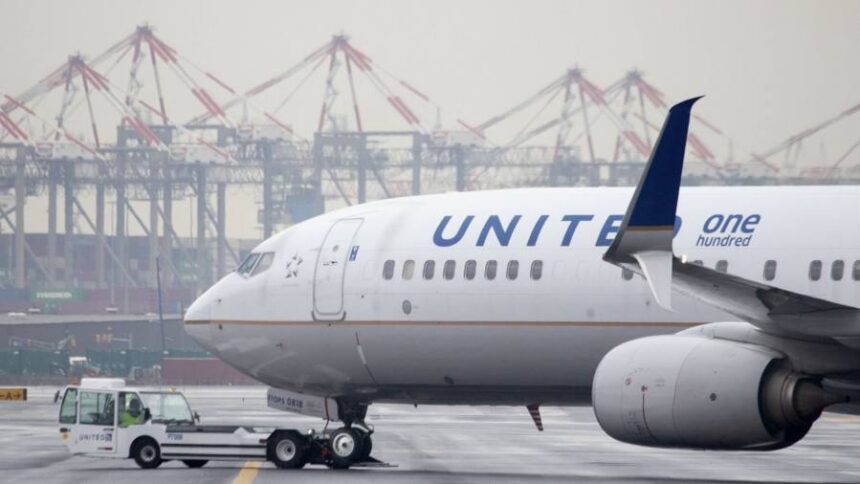Receive free United Airlines updates
We’ll send you a myFT Daily Digest email rounding up the latest United Airlines news every morning.
United Airlines said on Thursday that it will reduce flights to a metro New York area airport by 5 per cent next month after recent flight disruptions there cost it about 1 point of margin during the second quarter.
The Chicago airline is seeking to improve reliability at the airport in Newark, New Jersey, a crucial hub for the carrier, by cutting back flights to 390 a day. United had already cut back from 435 daily flights to 410 in a bid to avoid delays and cancellations.
Reducing capacity will drive up the cost of flying each airline seat for 1 mile by 1-2 per cent, instead of staying flat as the carrier had forecast three months ago. However, executives told investors the benefit will outweigh the expense.
“There’s nothing as expensive as running an off-schedule operation,” said chief executive Scott Kirby.
Still, the disruptions did not stop the airline from reporting on Wednesday record adjusted earnings of $5.03 per share between April and June. Second-quarter revenue rose 20 per cent compared with the same period last year, to $13bn. United predicted adjusted earnings of $11 to $12 per share this year, raising the bottom of its guidance range from $10.
Customers have continued to snap up tickets, particularly to overseas destinations. While United’s revenue from domestic travel grew 8 per cent to just under $8bn, revenue from travel to Europe grew 42 per cent, to $2.6bn. Revenue from trips to Pacific destinations grew 161 per cent to $1.1bn.
Newark is critical to United’s plan to capitalise on demand for international travel. President Brett Hart said the airline is focused on setting up the airline to recover faster after weather disrupts its schedule.
Besides cutting flights at Newark, United plans to add gates at the airport, while increasing the number of jets flying and returning to New Jersey, rather than continuing on to other destinations, to prevent local disruptions from spilling into the wider network. The carrier plans to upgrade the technology it uses to reassign crew members when flights are cancelled and to work more closely with the US Federal Aviation Administration, which runs air traffic control.
Kirby criticised the FAA last month after the disruptions, but Hart noted that United is backing an FAA reauthorisation bill before Congress that will fund the agency, which is “among the best investments we can make for the travelling public”.








